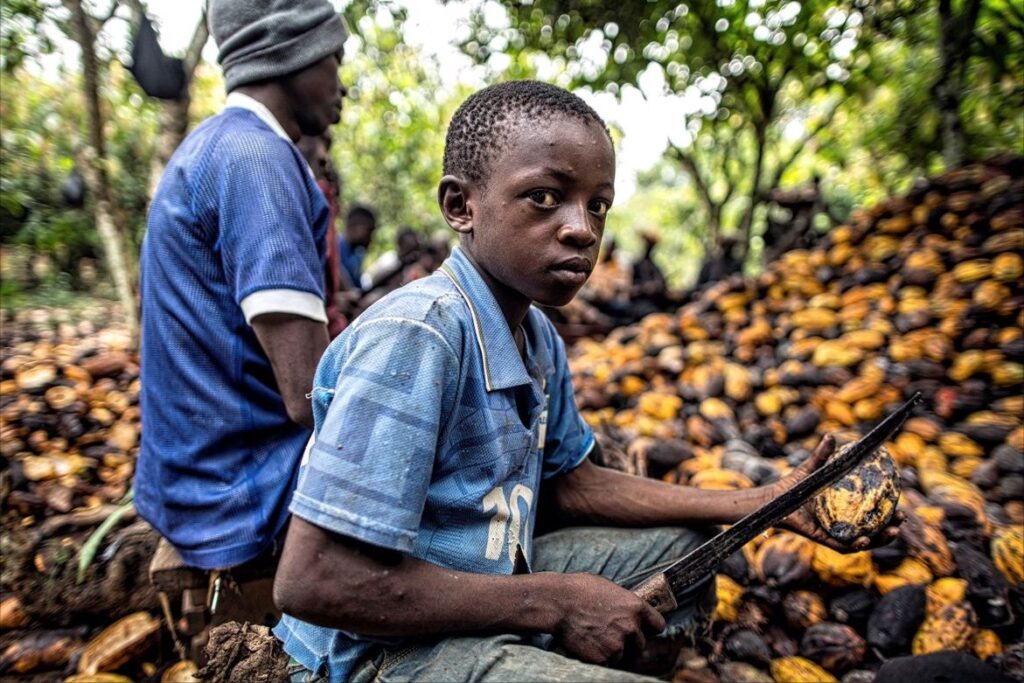How Ironic The Chocolate Has Its Dark Side
Ironically, the chocolate industry has its dark side.
Cocoa and chocolate are enjoyed by millions worldwide, with Switzerland being famous for its chocolates. Did you know that an average person in Switzerland consumes 10 kilos of chocolate?

However, the cocoa sector faces significant challenges, particularly in West Africa, where an estimated 1.5 million children work in cocoa farms: child labor.
As consumers, we have the power to make a difference. Let’s advocate for human rights and demand ethical practices in the cocoa industry.
It is crucial because governments, chocolate companies, civil society, and non-profits must work together to tackle this issue.
In an ideal world, we would read the labels of every chocolate we buy. Unfortunately, the labels don’t say anything about child labor.
Check out this Swiss Platform for Sustainable Cocoa article: “The Bitter Side of Chocolate.”
The article highlights critical points in this industry: “The cocoa sector faces a number of challenges. A large proportion of cocoa farmers are affected by poverty, and child labor remains a prevailing issue, particularly in West Africa. In addition, cocoa is often produced at the expense of the environment.”
Listen to this podcast from SWI swissinfo.ch about this topic:
Post originally shared on LinkedIn.
